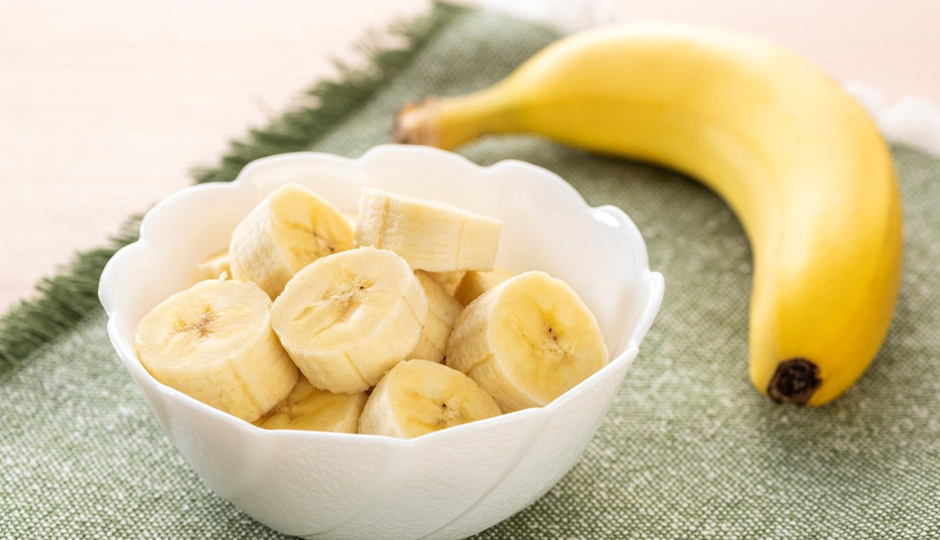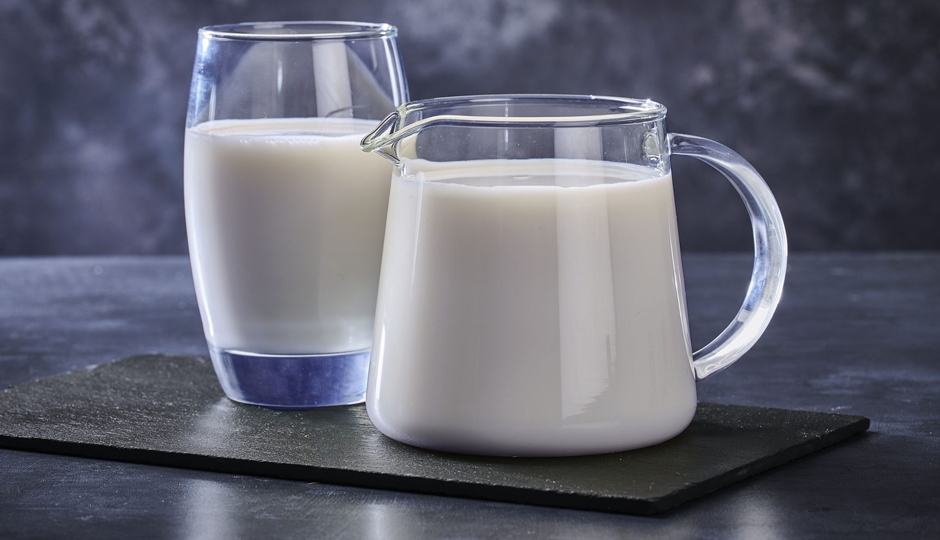- Home›
- Healthy Living›
- Understanding High Cholesterol: 14 Cholesterol-Lowering Foods To Add To Your Diet
Understanding High Cholesterol: 14 Cholesterol-Lowering Foods To Add To Your Diet
By: Priyanka Maheshwari Thu, 27 June 2024 3:39:42
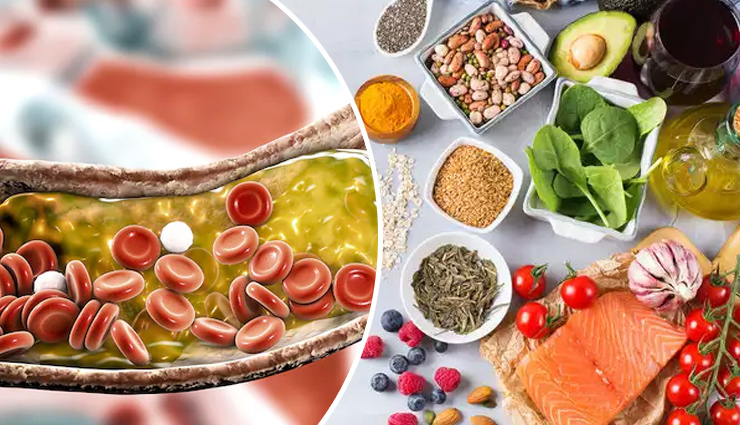
High cholesterol levels can pose significant risks to cardiovascular health, increasing the chances of heart disease and stroke. However, by making informed dietary choices, you can help manage your cholesterol levels and promote a healthier heart. In this article, we will explore what high cholesterol is and provide a list of 14 cholesterol-lowering foods that you can incorporate into your diet.
What is High Cholesterol?
Cholesterol is a waxy substance found in the blood and cells of our bodies. While cholesterol is essential for various bodily functions, high levels of LDL (low-density lipoprotein) cholesterol, often referred to as "bad" cholesterol, can lead to the buildup of plaque in the arteries. This buildup restricts blood flow and increases the risk of cardiovascular diseases such as heart attacks and strokes.
14 Cholesterol-Lowering Foods:

# Oats
Oats contain a type of soluble fiber called beta-glucan. This soluble fiber forms a gel-like substance in the digestive system, which binds to cholesterol and prevents its absorption into the bloodstream. As a result, the cholesterol is excreted from the body rather than being absorbed. Oats also have a positive impact on HDL (high-density lipoprotein) cholesterol, often referred to as "good" cholesterol. HDL cholesterol helps remove LDL cholesterol from the bloodstream, preventing it from accumulating in the arteries. By increasing HDL cholesterol, oats promote a healthier cholesterol profile.
To incorporate oats into your diet for cholesterol reduction, consider the following tips:
Start Your Day with Oatmeal: Enjoy a bowl of oatmeal topped with fresh fruits, nuts, or a drizzle of honey for a nutritious and cholesterol-friendly breakfast.
Oat-based Snacks: Incorporate oats into homemade granola bars, energy balls, or baked goods like muffins and cookies.
Overnight Oats: Prepare overnight oats by soaking oats in milk or yogurt overnight, then topping them with your choice of fruits, nuts, or seeds for a convenient and healthy breakfast option.
Use Oat Flour: Substitute regular flour with oat flour in recipes like pancakes, waffles, or bread to boost the fiber and nutritional content.
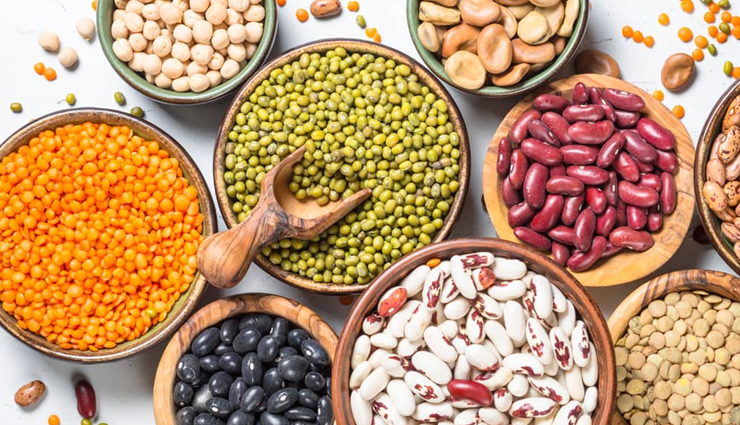
# Beans and Legumes
Like oats, beans and legumes are rich in soluble fiber. This type of fiber forms a gel-like substance in the digestive system, which binds to cholesterol and prevents its absorption into the bloodstream. By reducing the absorption of cholesterol, beans and legumes can help lower LDL cholesterol levels. Beans and legumes are naturally low in saturated fat, unlike animal-based protein sources. Diets high in saturated fat can raise LDL cholesterol levels. By choosing beans and legumes as a protein source instead of high-fat animal products, you can reduce your saturated fat intake and support heart health.
To incorporate beans and legumes into your diet for cholesterol reduction, consider the following options:
Chickpeas: Enjoy them in hummus, salads, or as a base for veggie burgers.
Lentils: Add them to soups, stews, or salads for a hearty and nutritious boost.
Black beans: Use them in chili, burritos, or as a topping for salads.
Kidney beans: Incorporate them into chili, bean salads, or as a filling for wraps.
Edamame: Snack on steamed edamame or add them to stir-fries and salads.
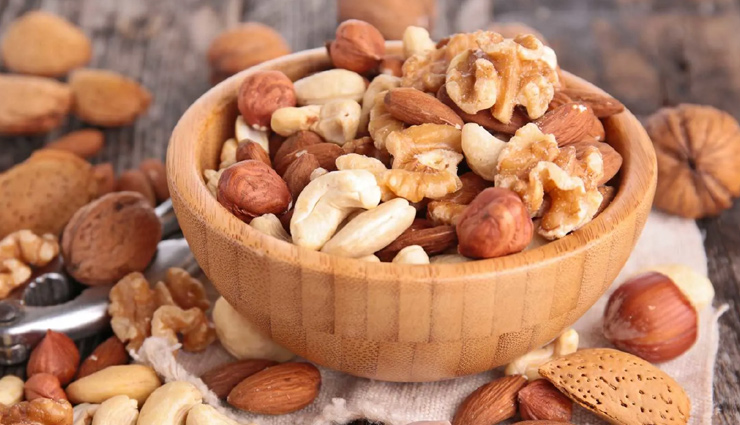
# Nuts
Nuts are rich in monounsaturated and polyunsaturated fats, including omega-3 fatty acids. These healthy fats have been shown to help lower LDL (bad) cholesterol levels while increasing HDL (good) cholesterol levels. By replacing unhealthy saturated and trans fats with the healthier fats found in nuts, you can promote a healthier cholesterol profile. Nuts are also good source of dietary fiber, including both soluble and insoluble fibers. Soluble fiber helps to reduce LDL cholesterol levels by binding to cholesterol in the digestive system and preventing its absorption into the bloodstream. Insoluble fiber adds bulk to the stool, aiding in digestion and promoting overall heart health.
To incorporate nuts into your diet for cholesterol reduction, consider the following options:
Almonds: Enjoy a handful of almonds as a snack or add them to salads, oatmeal, or stir-fries.
Walnuts: Sprinkle walnuts on top of yogurt, cereal, or incorporate them into baked goods.
Pistachios: Snack on pistachios, use them as a topping for salads, or add them to trail mix.
Cashews: Enjoy cashews as a standalone snack or use them in stir-fries and curry dishes.
Hazelnuts: Add chopped hazelnuts to your morning cereal, yogurt, or use them in baking recipes.
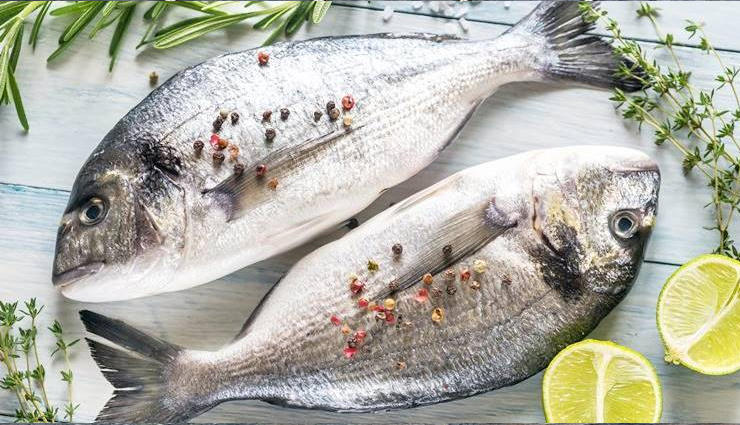
# Fatty Fish
Fatty fish, such as salmon, mackerel, and sardines, are known for their high levels of omega-3 fatty acids, which contribute to reducing high cholesterol levels. Fatty fish are rich sources of omega-3 fatty acids, specifically EPA (eicosapentaenoic acid) and DHA (docosahexaenoic acid). These omega-3 fats have been shown to have numerous cardiovascular benefits, including reducing triglyceride levels and lowering the risk of heart disease. They also have anti-inflammatory properties that can help improve overall heart health. Triglycerides are a type of fat found in the blood. High levels of triglycerides are often associated with elevated LDL cholesterol levels and an increased risk of heart disease. The omega-3 fatty acids in fatty fish help reduce triglyceride levels, thereby contributing to improved cholesterol management.
To benefit from the cholesterol-lowering properties of fatty fish, aim to include them in your diet at least twice a week. Here are some tips to incorporate fatty fish into your meals:
Grilled or Baked: Grill or bake salmon, mackerel, or sardines with minimal added fats and seasonings for a healthy and flavorful meal.
Salads: Add flaked salmon or sardines to salads for a protein-rich and omega-3-packed dish.
Stir-fries: Toss chunks of fish in stir-fries with vegetables for a nutritious and quick meal option.
Tacos or Wraps: Use grilled fish as a filling for tacos or wraps along with fresh vegetables and whole-grain tortillas.
Canned Varieties: Opt for canned salmon or sardines as convenient options to include in salads, sandwiches, or pasta dishes.
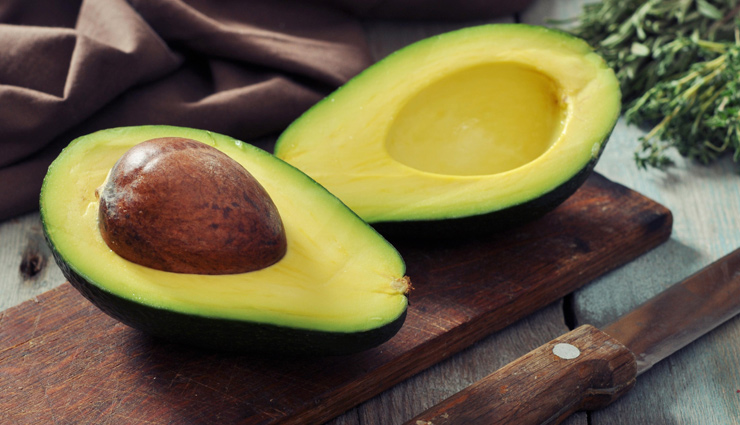
# Avocado
Avocados are rich in monounsaturated fats, which are considered heart-healthy fats. These fats can help lower LDL (bad) cholesterol levels while increasing HDL (good) cholesterol levels. By incorporating avocados into your diet, you can replace saturated and trans fats with healthier fats, promoting a more favorable cholesterol profile. Avocados are a good source both soluble and insoluble fiber. Soluble fiber helps lower LDL cholesterol by reducing its absorption in the intestines. Insoluble fiber adds bulk to the stool, aiding digestion and promoting overall heart health.
To incorporate avocados into your diet for cholesterol reduction, consider the following options:
Guacamole: Prepare homemade guacamole using ripe avocados, lime juice, and seasonings. Enjoy it as a dip or spread on whole-grain toast.
Salads: Add sliced or diced avocados to salads for a creamy texture and healthy fat content.
Smoothies: Blend avocado into smoothies with other fruits and vegetables for a nutritious and filling drink.
Sandwiches and Wraps: Use avocado slices as a substitute for mayonnaise or other high-fat spreads in sandwiches and wraps.
Avocado Oil: Use avocado oil for cooking and dressing salads as a healthier alternative to oils high in saturated fats.
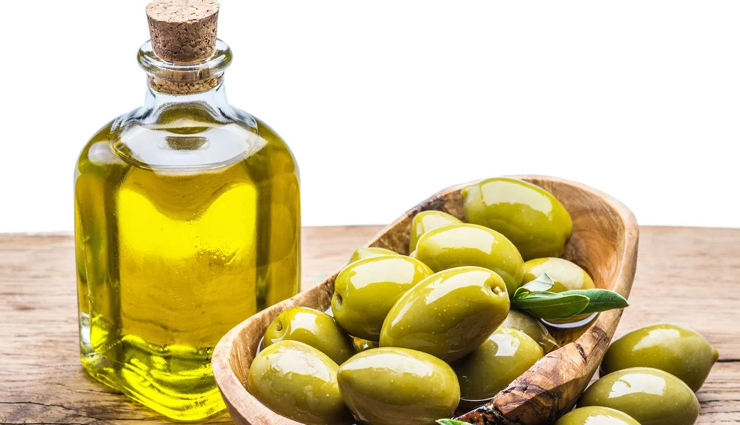
# Olive Oil
Olive oil is rich in monounsaturated fats, particularly oleic acid. These healthy fats have been shown to help lower LDL (bad) cholesterol levels while increasing HDL (good) cholesterol levels. By substituting unhealthy fats, such as saturated and trans fats, with olive oil, you can improve your cholesterol profile. Olive oil contains polyphenols which are antioxidants that have numerous health benefits. Polyphenols in olive oil have been associated with reducing inflammation and oxidative stress, which are risk factors for heart disease. By reducing inflammation, olive oil can help maintain cardiovascular health. LDL cholesterol can become oxidized in the body, which can lead to the formation of plaque in the arteries. The antioxidants found in olive oil, such as vitamin E and polyphenols, can help protect LDL cholesterol from oxidation, thereby reducing the risk of plaque buildup.
To incorporate olive oil into your diet for cholesterol reduction, consider the following guidelines:
Use Extra Virgin Olive Oil: Opt for extra virgin olive oil, as it is the least processed form and retains more of its beneficial compounds.
Cooking and Dressings: Use olive oil for cooking by sautéing vegetables or grilling lean proteins. It can also be used as a dressing for salads.
Replace Unhealthy Fats: Substitute unhealthy fats, such as butter or margarine, with olive oil in recipes and food preparation.
Moderation is Key: While olive oil is beneficial, it is high in calories. It's important to use it in moderation and be mindful of portion sizes.
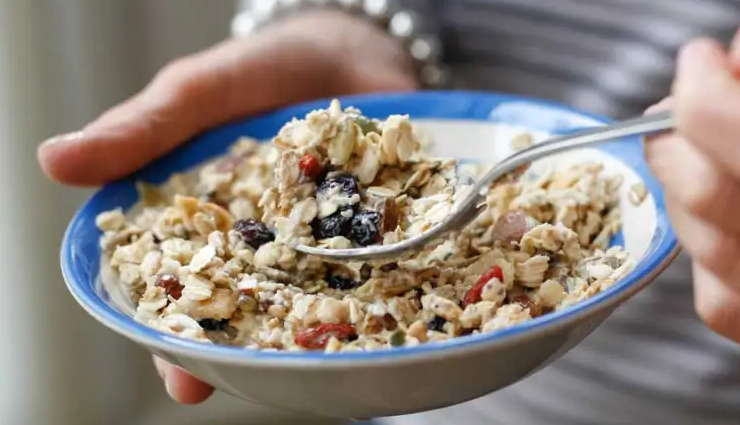
# Whole Grains
Whole grains are rich in dietary fiber, including both soluble and insoluble fibers. Soluble fiber, in particular, helps lower LDL (bad) cholesterol levels by reducing its absorption in the intestines. By increasing your intake of whole grains, you can boost your fiber consumption and support healthy cholesterol levels. Whole grains are complex carbohydrates that are digested more slowly than refined grains. This slower digestion helps regulate blood sugar levels and insulin response, which can positively impact cholesterol management. Whole grains, such as oats and barley, naturally contain plant sterols. These compounds have a similar structure to cholesterol and can interfere with its absorption in the intestines. By incorporating whole grains into your diet, you can benefit from these plant sterols, contributing to lower LDL cholesterol levels.
To incorporate whole grains into your diet for cholesterol reduction, consider the following options:
Oats: Enjoy a bowl of oatmeal for breakfast or use oats in baking recipes.
Barley: Use barley in soups, stews, or as a base for grain salads.
Quinoa: Substitute quinoa for rice or pasta in various dishes or use it as a base for salads.
Brown Rice: Replace refined white rice with whole grain brown rice in meals.
Whole Wheat: Choose whole wheat bread, pasta, and wraps instead of their refined counterparts.
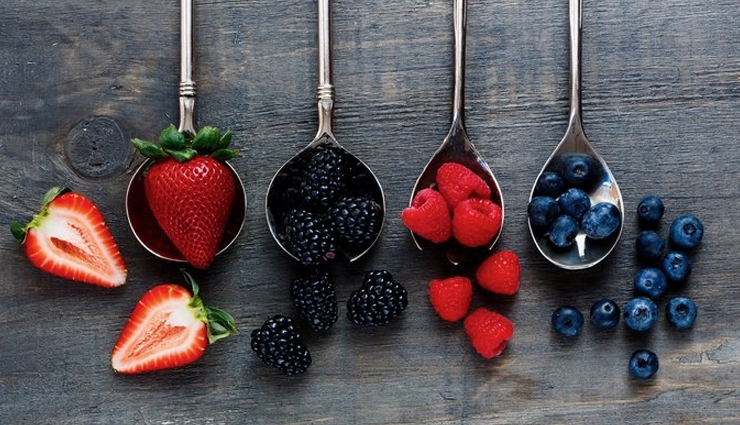
# Berries
Berries, including strawberries, blueberries, raspberries, and blackberries, are not only delicious but also offer several benefits for reducing high cholesterol levels. Berries are loaded with antioxidants, including anthocyanins, which give them their vibrant colors. These antioxidants help reduce oxidative stress and inflammation in the body, which can contribute to heart disease. By reducing inflammation, berries can support overall heart health and cholesterol management. Berries are excellent sources of dietary fiber, both soluble and insoluble. Soluble fiber helps lower LDL (bad) cholesterol levels by binding to cholesterol in the digestive system and promoting its excretion. Increasing your fiber intake through berries can help maintain healthy cholesterol levels.
To incorporate berries into your diet for cholesterol reduction, consider the following tips:
Fresh Berries: Enjoy a handful of fresh berries as a snack or incorporate them into your breakfast routine by adding them to cereals, oatmeal, or yogurt.
Smoothies: Blend berries with a liquid base and other fruits for a nutritious and cholesterol-friendly smoothie.
Salads: Add berries to salads for a burst of flavor, or create a mixed berry salad for a refreshing side dish.
Frozen Berries: Frozen berries can be used in smoothies, baked goods, or as a topping for yogurt or pancakes.
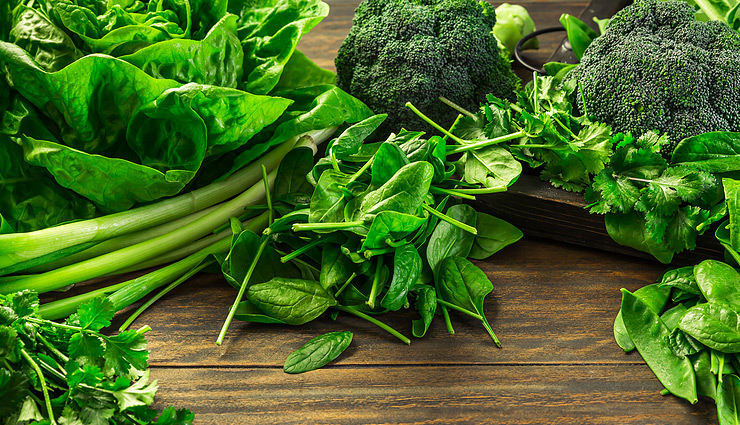
# Dark Leafy Greens
Dark leafy greens, such as spinach, kale, Swiss chard, and collard greens, are excellent additions to a cholesterol-lowering diet. Dark leafy greens are high in dietary fiber, including soluble fiber. Soluble fiber helps lower LDL (bad) cholesterol levels by binding to cholesterol in the digestive system and promoting its elimination. By increasing your fiber intake through dark leafy greens, you can support healthy cholesterol levels. Dark leafy greens are packed with essential nutrients, including vitamins (such as vitamin K, vitamin C, and folate), minerals (such as magnesium and potassium), and antioxidants. These nutrients contribute to overall heart health and help reduce inflammation and oxidative stress, which can be associated with high cholesterol levels.
To incorporate dark leafy greens into your diet for cholesterol reduction, consider the following tips:
Salads: Include a variety of dark leafy greens as a base for salads. Mix them with other vegetables, fruits, and lean proteins for a nutrient-rich meal.
Smoothies: Blend dark leafy greens into smoothies with fruits, Greek yogurt, or a liquid base like almond milk for a nutritious and refreshing beverage.
Sautéed or Steamed: Sauté or steam dark leafy greens as a side dish or incorporate them into stir-fries, soups, or pasta dishes.
Wraps or Sandwiches: Add a handful of dark leafy greens to wraps or sandwiches for added texture, flavor, and nutrients.
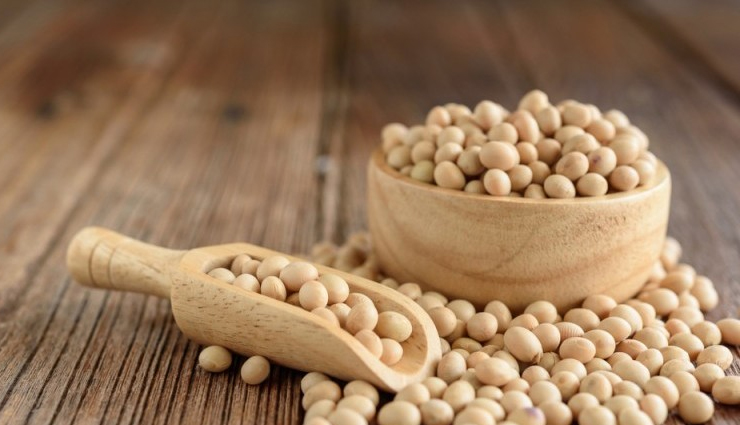
# Soy
Soy-based foods, such as tofu, tempeh, soy milk, and edamame, have been studied for their potential to reduce high cholesterol levels. Soy foods are rich in high-quality plant-based protein. Consuming soy protein in place of animal protein can help lower LDL (bad) cholesterol levels. The protein in soy has been shown to have a modest cholesterol-lowering effect when included as part of a heart-healthy diet. Soy foods, particularly whole soybeans (edamame), contain dietary fiber. Dietary fiber helps reduce the absorption of cholesterol in the intestines, contributing to lower LDL cholesterol levels. Soybeans contain isoflavones, which are phytochemicals with antioxidant properties. Isoflavones may help improve cholesterol levels by reducing LDL cholesterol and increasing HDL (good) cholesterol. These compounds have been shown to have cardiovascular benefits.
To incorporate soy into your diet for cholesterol reduction, consider the following tips:
Substitute Animal Protein: Replace some animal protein sources, such as meat, with soy-based alternatives like tofu or tempeh in dishes like stir-fries, curries, or salads.
Snack on Edamame: Enjoy steamed edamame as a protein-packed and cholesterol-friendly snack.
Drink Soy Milk: Choose unsweetened soy milk as a dairy milk alternative in beverages, cereals, or recipes.
Incorporate Soy Products: Include soy-based products, such as soy burgers or soy-based sausages, as part of a balanced meal plan.
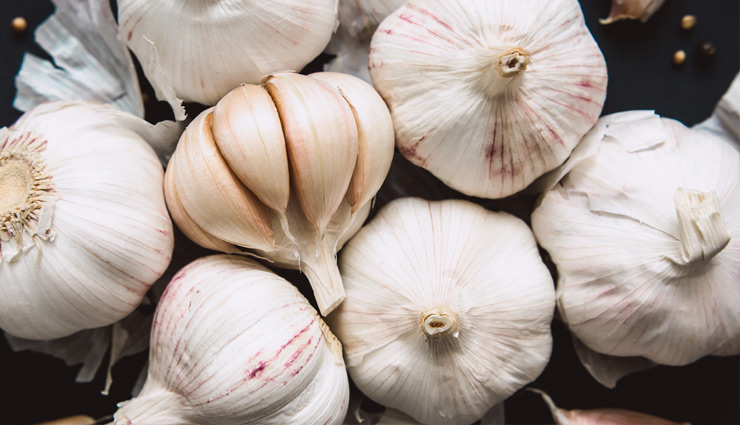
# Garlic
Garlic contains a compound called allicin, which is responsible for its distinct odor and many of its health benefits. Allicin has been shown to have cholesterol-lowering effects by inhibiting the enzyme responsible for cholesterol production in the liver. It may also help lower LDL (bad) cholesterol levels and reduce the risk of plaque formation in the arteries. Garlic contains antioxidants that help protect against oxidative stress and damage caused by free radicals. Antioxidants can help prevent the oxidation of LDL cholesterol, which is a key step in the development of plaque in the arteries.
To incorporate garlic into your diet for cholesterol reduction, consider the following tips:
Fresh Garlic: Include fresh garlic in your meals by mincing or crushing it and adding it to sautés, stir-fries, soups, and sauces.
Roasted Garlic: Roasting garlic can mellow its flavor and make it easier to incorporate into various dishes. Use roasted garlic in spreads, dressings, or as a flavor enhancer for roasted vegetables.
Garlic Supplements: Garlic supplements are available in the form of capsules or tablets. However, it's essential to consult with a healthcare professional before starting any supplements to ensure they are suitable for you and won't interact with any medications you may be taking.
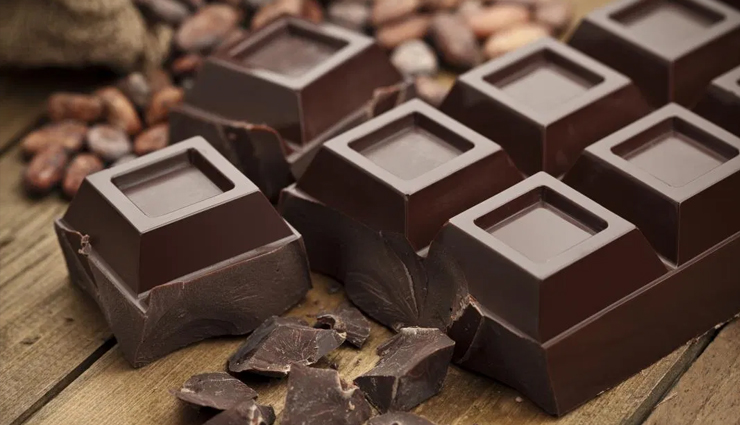
# Dark Chocolate
Dark chocolate is rich in flavonoids, particularly a type called flavanols. Flavonoids are plant compounds with antioxidant properties that may have positive effects on heart health. Flavanols have been associated with improving cholesterol levels by reducing LDL (bad) cholesterol oxidation, increasing HDL (good) cholesterol, and promoting overall cardiovascular health. Chronic inflammation is linked to heart disease, including high cholesterol levels. Dark chocolate contains anti-inflammatory properties that may help reduce inflammation in the body, supporting heart health.
To incorporate dark chocolate into your diet for cholesterol reduction, consider the following tips:
Choose High-Quality Dark Chocolate: Opt for dark chocolate that contains at least 70% cocoa solids. The higher the cocoa content, the more beneficial compounds, such as flavanols, it will likely contain.
Moderation is Key: Dark chocolate should be enjoyed in moderation due to its calorie and sugar content. Stick to a small portion, such as an ounce (28 grams), a few times a week.
Pair with Healthy Foods: Enjoy dark chocolate with foods that have additional heart-healthy benefits, such as nuts, berries, or dried fruits.
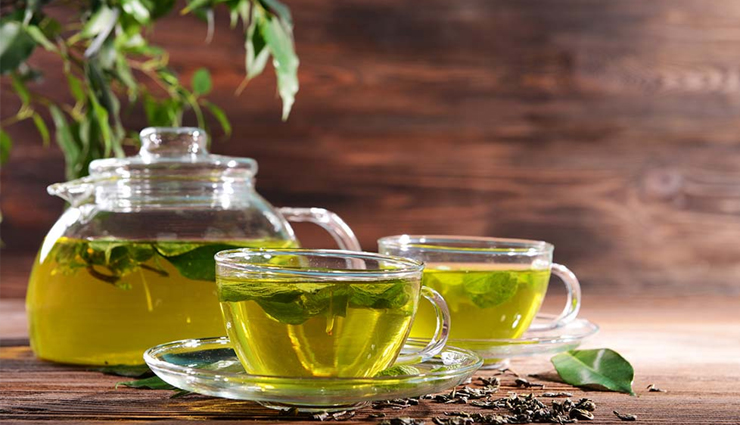
# Green Tea
Green tea is rich in polyphenols, particularly catechins, which are powerful antioxidants. Catechins have been associated with cholesterol-lowering effects by reducing LDL (bad) cholesterol levels and increasing HDL (good) cholesterol levels. They may also help inhibit the absorption of cholesterol in the intestines. EGCG is a specific catechin found in green tea that has been extensively studied for its potential health benefits. EGCG may help improve cholesterol levels by reducing LDL cholesterol oxidation, promoting arterial health, and reducing the risk of plaque formation in the arteries.
To incorporate green tea into your diet for cholesterol reduction, consider the following tips:
Brew a Cup: Enjoy a hot or cold cup of green tea on its own or with a squeeze of lemon for added flavor.
Matcha Green Tea: Consider trying matcha, a powdered form of green tea that is whisked into hot water. Matcha is known for its higher concentration of antioxidants and potential health benefits.
Green Tea Extract: Green tea extract supplements are available, but it's important to consult with a healthcare professional before starting any supplements to ensure they are suitable for you and won't interact with any medications you may be taking.
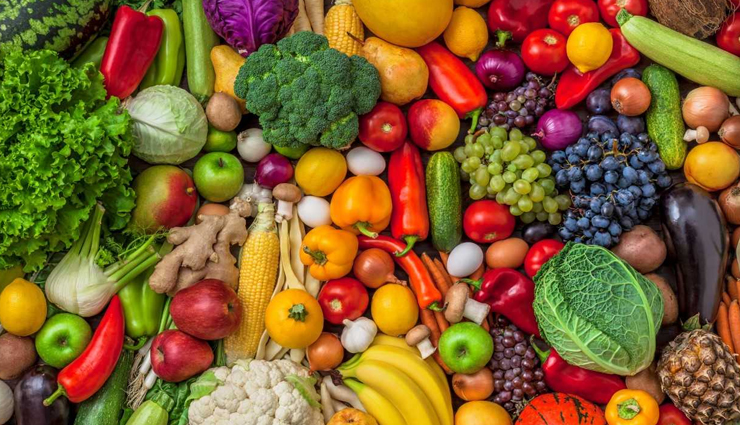
# Fruits and Vegetables
Fruits and vegetables are excellent sources of dietary fiber, both soluble and insoluble. Soluble fiber, in particular, helps lower LDL (bad) cholesterol levels by binding to cholesterol in the digestive system and promoting its elimination. By increasing your fiber intake through fruits and vegetables, you can support healthy cholesterol levels. Some fruits and vegetables, such as apples, strawberries, and Brussels sprouts, contain natural plant sterols. Plant sterols have a similar structure to cholesterol and can interfere with cholesterol absorption in the intestines, leading to reduced cholesterol levels.
To incorporate fruits and vegetables into your diet for cholesterol reduction, consider the following tips:
Variety is Key: Aim to include a wide range of colorful fruits and vegetables in your meals. Different fruits and vegetables offer various nutrients and antioxidants that collectively contribute to heart health.
Fresh or Frozen: Opt for fresh fruits and vegetables when available. Frozen varieties are also a good option, as they retain their nutritional value and can be more convenient.
Salads and Stir-Fries: Add a variety of vegetables to salads or stir-fries. Consider leafy greens, bell peppers, tomatoes, broccoli, carrots, and other colorful options.
Fruit as Snacks: Replace unhealthy snacks with fresh fruits. They are naturally sweet, provide fiber, and offer a wide range of vitamins and minerals.



